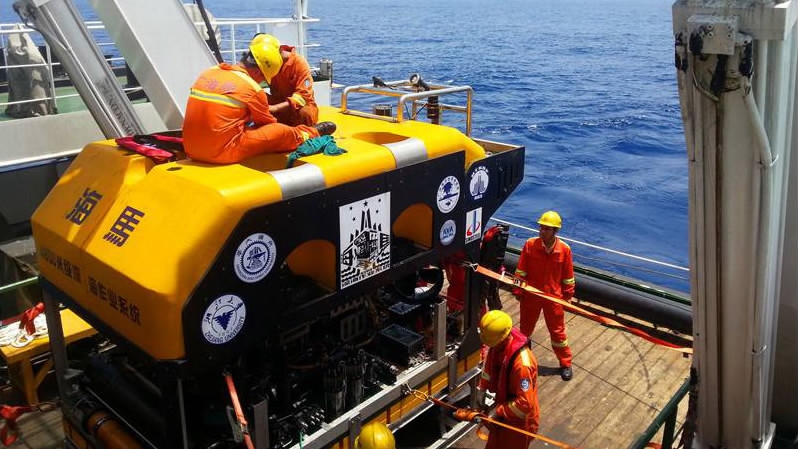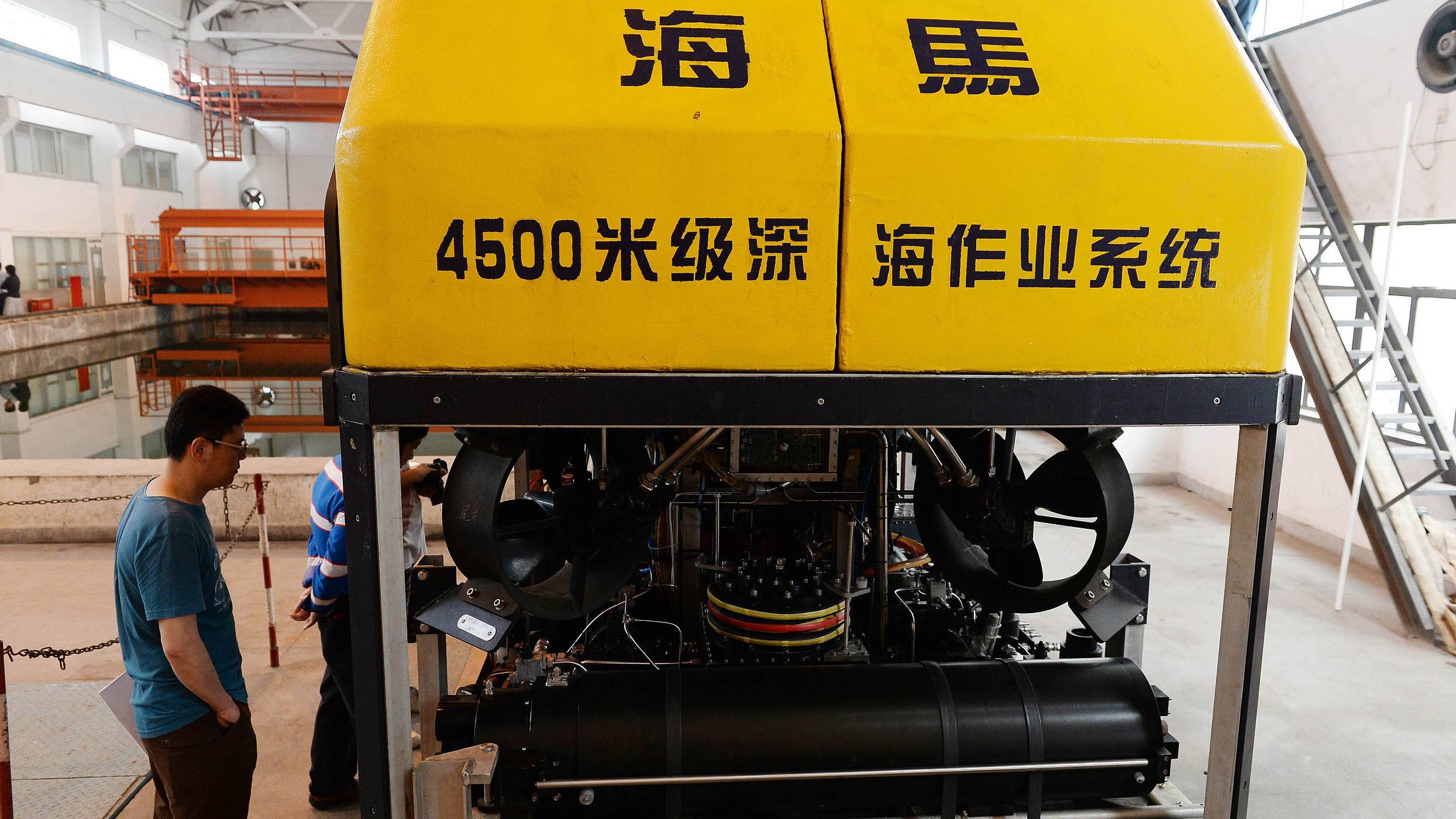
Tech & Sci
18:24, 25-Jun-2017
China’s deep-sea remotely operated vehicle to dive in waters end of June

China’s deep-sea remotely operated submersible vehicle, dubbed “Hippocampus,” has completed the update of its devices, and is expected to set off on a new scientific expedition by the end of June, announced the China Geological Survey (CGS) of the Ministry of Land and Resources on Sunday.
According to the CGS, Hippocampus is tasked with the detection and collection of samples of cobalt crusts, rock-hard layers that form on seamounts or submarine volcanoes.
In order to operate better in deep waters, the submersible has been equipped with two new types of drilling rigs as well as a cutting machine, said the CGS.

Hippocampus was designed by China. /VCG Photo
Hippocampus was designed by China. /VCG Photo
Forming on rocky surfaces underwater, cobalt crusts are a promising resource because of the large amount of cobalt, nickel, manganese and other metals they contain. They can be used in aircraft and aerospace vehicles.
The submersible is four meters long, 2.1 meters wide and 2.6 meters high. It looks like a huge yellow box and weighs about five tons.
As the country's major project in ocean research, Hippocampus can dive as deep as 4,500 meters.
China has previously introduced various submersibles for deep-sea scientific research, such as manned submersible Jiaolong and unmanned vehicle, Qianlong No.2.
Related story:

SITEMAP
Copyright © 2018 CGTN. Beijing ICP prepared NO.16065310-3
Copyright © 2018 CGTN. Beijing ICP prepared NO.16065310-3